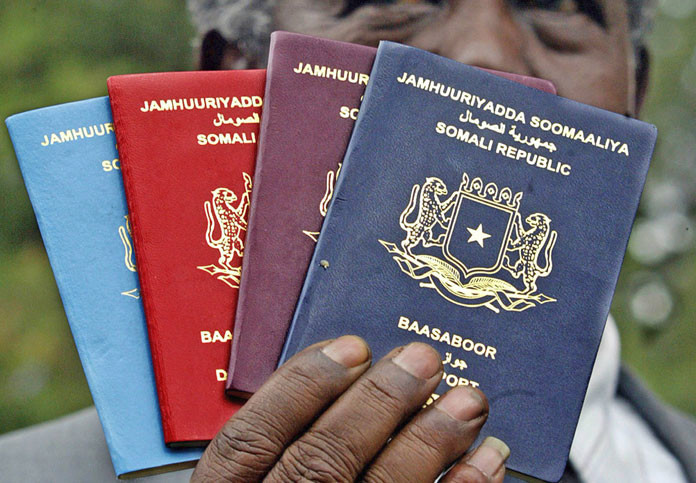Africa's richest man Aliko Dangote has said he needs 38 visas to travel within the continent on his Nigerian passport. Many European nationals, meanwhile, waltz into most Africans countries visa-free.
African nations were supposed to scrap visa requirements for all African citizens by 2018.
It was a key part of the African Union (AU) "vision and roadmap for the next 50 years" that was adopted by all members states in 2013.
But to date, the Seychelles is the only nation where visa-free travel is open to all Africans - as well as to citizens of every nation - as it always has been.
A recent AU report found that Africans can travel without a visa to just 22% of other African countries.
It is a sensitive topic, provoking xenophobic attitudes in some of Africa's wealthier nations despite policymakers from Cape to Cairo insisting that the free movement of people is key for economic transformation.
"Our leaders seem to go to ridiculous lengths to preserve and protect the colonial borders," says South African travel blogger Katchie Nzama, who has visited 35 of Africa's 55 countries.
![]()
The AU may want a borderless continent where its 1.2 billion people can move freely between nations, similar to the European Union, but it seems there is no shortage of obstacles.
Whether it is immigration officials in Burkina Faso charging an arbitrary $200 (£155) for a visa on arrival, or Tanzania arresting and deporting other East Africans who enter illegally, or Tunisia refusing visas to stranded African passengers after a cancelled flight, intra-African travel is fraught with suspicion.
Double standards?
South Africa appears to be the most visible representative of the continent's visa double standard, remaining largely closed to other Africans but more welcoming to the wider world.
Citizens of only 15 African nations can travel to South Africa without a visa, yet holders of 28 different European passports can enter the country freely.
The country's Department of Home Affairs spokesman Thabo Mokgola defends its policy.
"This is an unfair assertion - visa-waiver agreements are premised on reciprocity and we are finalising such with a number of African countries," he told the BBC.
Just how that reciprocity is applied is unclear.
Kenya, for example, gives South African citizens a visa on arrival for free. But Kenyans must apply for a visa, then pay a service fee and wait for at least five working days before travelling to South Africa.
In 2015, two years after the African Union asked members to commit to abolishing visa requirements for all Africans by 2018, South Africa did the opposite and announced stricter regulations that were widely criticised.
Hit by a recession and a drop in tourist numbers, the country caved in and recently announced that it was relaxing travel rules in the hope of reviving its struggling economy.

